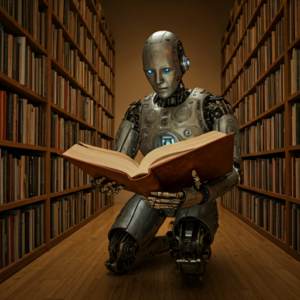 I have been thinking a bit about all that’s going on in the world. Politics, massive changes with AI and I think that a part of me, although fascinated by all this technology and all the insanity of humanity – I’m getting to a point of dissolution. I look at my logs for my servers and see hundreds if not thousands of attacks a day on my machines,
I have been thinking a bit about all that’s going on in the world. Politics, massive changes with AI and I think that a part of me, although fascinated by all this technology and all the insanity of humanity – I’m getting to a point of dissolution. I look at my logs for my servers and see hundreds if not thousands of attacks a day on my machines,
I think about how a parent might explain all this to a child. It’s a strange time and I’m probably like a lot of people in that I’m having trouble finding a positive point of reference. So being the geek that I am I asked ai what to do about this!
So I’m having trouble finding a positive point of reference with regards politics humanity and technology. How might I find a Segway out of this mental funk?
I put this question to ChatGPT, Gemini, and grok
This is some edited content…
Googles Gemini suggested the following and was probably the most useful advice
Cultivating Personal Well-being:
Practice Gratitude:
Regularly acknowledge the positive aspects of your life, no matter how small.
Keep a gratitude journal or simply take a few moments each day to reflect on what you’re grateful for.
Engage in Activities You Enjoy:
Pursue hobbies and activities that bring you joy and relaxation.
Spend time in nature, exercise, or engage in creative pursuits.
Limit Exposure to Negative Stimuli:
Take breaks from social media and news consumption when you feel overwhelmed.
Set boundaries for your exposure to negative information.
Chat GPT was not quite so helpful but still this advice was not bad
Engage with Communities of Hope: Seek out people or communities that are tackling these challenges with a sense of purpose. There are countless groups focused on making the world better, whether through political activism, innovation, or human connection. These communities often offer both solidarity and inspiration.
Grok came up with this, which I liked
“how renewable energy tech keeps getting cheaper”
And with that I think I’ll now finish writing this and put some of this not so bad advice into practice!


